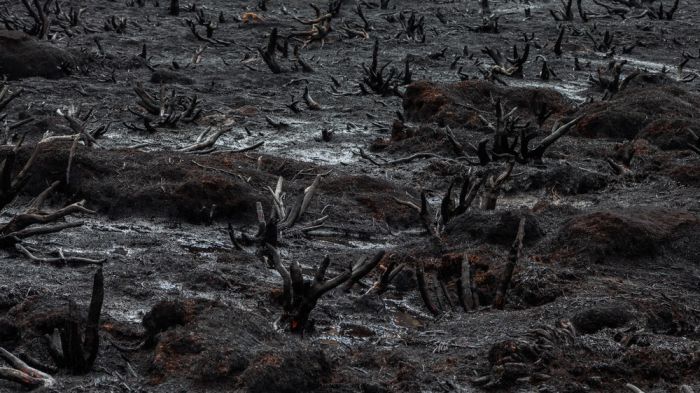|
|
Tasmania Island Fire, Commonwealth Of Australia, South Pacific Ocean
|
Rainfall in Tasmania follows a complicated pattern rather analogous to that found on large continents at the same latitude in the Northern Hemisphere. On the western side, rainfall increases from around 1,458 millimetres (57.4 in) at Strahan on the coast up to 2,690 millimetres (106 in) at Cradle Valley in the highlands.
There is a strong winter maximum in rainfall: January and February typically averages between 30 and 40% the rainfall of July and August, though even in the driest months, the number of rainy days per year is much greater than on any part of the Australian mainland. Further east in the Lake Country, annual rainfall declines to around 900 millimetres (35 in), whilst in the Midlands, annual rainfall is as low as 450 millimetres (18 in) at Ross and generally below 600 millimetres (24 in). The eastern part of Tasmania has more evenly distributed rainfall than in the west, and most months receive very similar averages.
The more densely populated northern coast is much drier than the western side, with annual rainfall ranging from 666 millimetres (26.2 in) in Launceston to 955 millimetres (37.6 in) in Burnie in the north west and 993 millimetres (39.1 in) in Scottsdale located further to the east. Most rain falls in winter, and in summer the average can be as low as 31 millimetres (1.2 in) per month in Launceston.
The east coast is wetter than the Midlands, with an average annual rainfall ranging from 775 millimetres (30.5 in) in St. Helens to around 640 millimetres (25 in) in Swansea. Here the rainfall is evenly distributed over the year, but can be very erratic as heavy rainfalls from the warm Tasman Sea are quite frequent. Whereas a three-day fall of 125 millimetres (4.9 in) occurs only once every 50 years on the north coast, it occurs on average once every four or five years around Swansea and Bicheno, and on 7–8 June 1954, there were many falls as large as 230 millimetres (9.1 in) in two days in that area. The east coast is sometimes called the "sun coast" because of its sunny climate.
|
|









